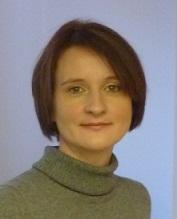Astrid Dannenberg
Visiting Professor of Environmental and Behavioural Economics from University of Kassel, Germany
Before you think about solutions, you need to understand the root cause of the problem
Professional biography
Astrid Dannenberg is Professor of Environmental and Behavioral Economics at the University of Kassel. Astrid received her MA in economics at the University of Mannheim and her PhD at the Otto-von-Guericke-University of Magdeburg. She has previously been a Research Fellow at the Centre for European Economic Research in Mannheim, and Columbia University in New York City. In 2014, she was awarded an ERC Starting Grant by the European Research Council for her research project “Human Cooperation to Protect the Global Commons” (HUCO). Astrid has served as a Council Member of the European Association of Environmental and Resource Economics (EAERE) from 2016 to 2019 and is an Editorial Board Member of the journals Economic Inquiry and Environmental and Resource Economics.
What are your main research interests?
My research focuses on human decision-making, the drivers and barriers of cooperation, and how institutions can be designed to promote cooperation. The focus is on traits of human behavior and institutional arrangements that either facilitate or impede the achievement of socially beneficial outcomes. The goal is to better understand human behavior in different contexts and institutional settings, and to share these insights with other researchers, students, policy, and society at large.
How does your research have influence beyond the academic world? Does this include any roles you have beyond the academy?
Our research group tries to share its research results and insights with policy makers and society at large, for example, by presenting them at public events or publishing them through media. We regularly present our research on climate change cooperation at the annual climate negotiations. We are also working together with practitioners who use our research findings in their organizations. For example, we have recently collaborated with a local cinema to find out whether movie-goers are willing to pay for a climate-neutral cinema and how this willingness to pay can be influenced.
Is teaching still a significant part of your working life? What particular method or approach would you say characterises your teaching?
I regularly give courses in environmental economics and behavioral economics. As an experimental economist, I use a lot of classroom games to teach the students; not with real money but sometimes with chocolate or gummy bears. We first play the game, then I tell the students what economic theory predicts for the games, what happens in lab experiments where the games are played for real money, and finally what can be learned from those simple games about the real world.
What specific passions or concerns particularly inspire you in your work?
The observation of people’s behavior; sometimes even my own behavior or that of our research group. It is interesting to see, for example, how social norms in our group emerge and how they are enforced.
Which of your publications would you regard as the most significant and why?
The papers on the effects of climate tipping points on cooperation, published in Proceedings of the National Academy of Sciences (PNAS), Nature Climate Change and ERE, have received the most attention so far. Personally, I’m very proud of the papers on institutional formation; an experimental paper with Scott Barrett published in the Journal of the European Economic Association and a review with Carlo Gallier published in Experimental Economics. I learned a lot during this work.
What are you particularly hoping to achieve during your time as a Visiting Professor in Gothenburg?
Gothenburg is the perfect place for me because there are many researchers who use behavioral and experimental economics to study environmentally relevant behavior. I hope that we will finalize ongoing research, initiate new research projects, and most of all that we will learn from each other.
Contact
Would you like to meet Astrid and/or have an idea for future cooperation?
Send an email to her contact persons at the School: Olof Johansson Stenman & Åsa Löfgren.

Focus areas
- cooperation
- institution formation
- experimental economics
- individual and group behavior
Funding
The Richard C Malmsten Memorial Foundation